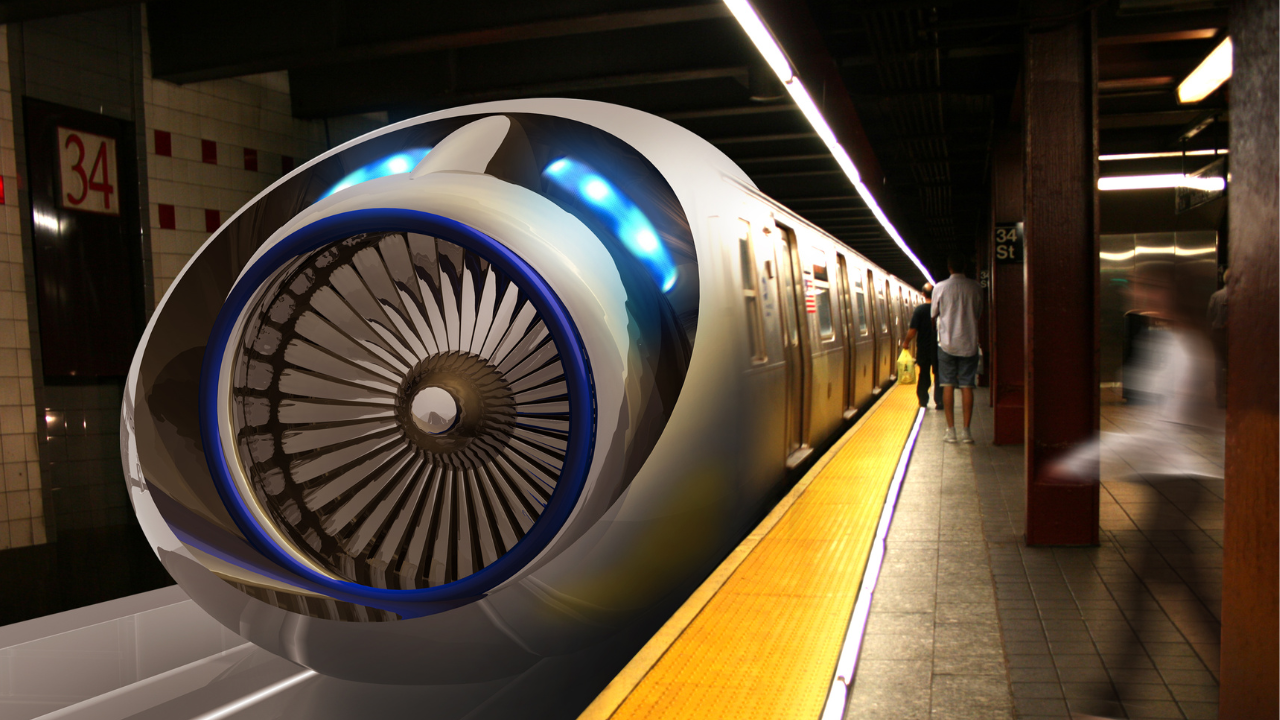
Chennai: In 2035, you could step into a hyperloop capsule alongside nearly 40 other passengers at Chennai’s Meenambakkam Airport. Strapping in, the sleek pod accelerates silently through a vacuum tube at 250 km/h, reaching the new Parandur Airport terminal in just 15 minutes. If plans go accordingly, this futuristic journey may soon become reality.
The Chennai Unified Metropolitan Transport Authority (CUMTA), in collaboration with IIT-Madras’ deep-tech startup TuTr Hyperloop, is exploring hyperloop as a potential high-speed connection between Meenambakkam and Parandur airports. CUMTA officials noted that TuTr Hyperloop has proposed trial runs at speeds of up to 600 km/h and has been encouraged to seek state government approval. “When the startup approached us, we highlighted the need for rapid transit to the new airport at Parandur, and hyperloop could play a role in the future,'' stated a CUMTA official, as quoted by TOI.
Reportedly, the officials further suggested that hyperloop technology could facilitate movement between Chennai Port and nearby logistics hubs, reducing road congestion and minimising accident risks. Operating with magnetic levitation in a vacuum tube, hyperloop pods glide almost noiselessly without physical track contact. Propelled by linear induction motors, they are decelerated via a motor-magnet braking system, with air compressors ensuring consistent high-speed travel.
The greenfield Parandur Airport is expected to be completed by late 2028, and Chennai Metro Rail Limited is already planning an extension from Poonamallee to Parandur, potentially linking Meenambakkam Airport to the new site as well.
CUMTA has proposed trial runs for the hyperloop on a 22-metre stretch along the Outer Ring Road, for which TuTr Hyperloop will seek government permission. “Even if the trial does not succeed, the infrastructure could still be repurposed for metro rail piers, ensuring no resources are wasted,” added a CUMTA official.
Aravind S. Bharadwaj, founder and director of TuTr Hyperloop, outlined plans for an initial testing phase, with speeds of 100–150 km/h on a 410-metre test track at IIT Madras’ Discovery Campus in Thaiyur. If successful, trials will advance to a longer track, reaching speeds of 600 km/h. "We are currently developing a 1.5-tonne pod and have built a linear induction motor prototype for propulsion testing. Levitation technology trials are also forthcoming," he explained.

